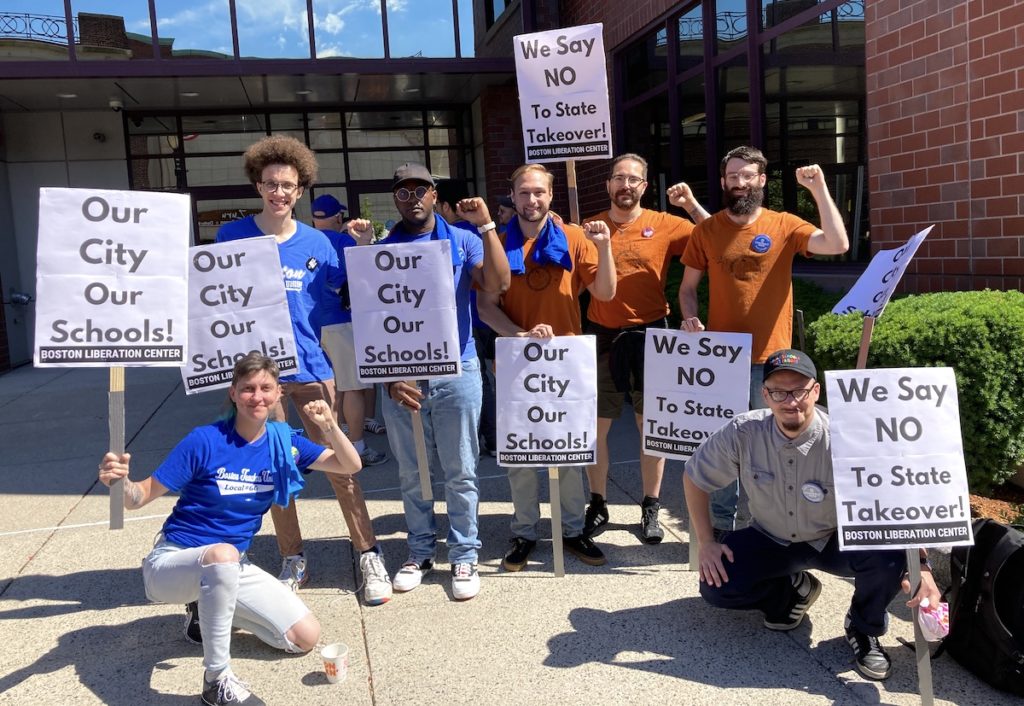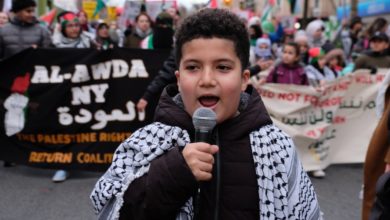The author is a Boston Teachers Union member at Charlestown High School.
After working for more than 10 months without a contract, the Boston Teachers Union reached a tentative agreement with Boston Public Schools on July 14.
If ratified in September, 10,000 educators will win their demands for pay equity, raises, inclusion and a pilot program to address student homelessness. This win follows the union’s recent defeat of “receivership” or state takeover of Boston Public Schools. BTU secured this latest contract agreement because of the strength of the union’s organizing through its ability to engage members, parents and the community in the contract struggle.
Teachers fight against student homelessness
In a city plagued with gentrification, educators used their contract battle to stand up for homeless students and families. The union won this historic language:
“The city of Boston and BPS are partners in a pilot program to house homeless families of 165 students in Boston schools with plans to scale that up at the end of the pilot period to house the families of up to 4,000 homeless students. We will work together with the pilot partners with the goal of eliminating homelessness for families of students in Boston schools within five years.”
This was only one of the Common Good bargaining proposals the union put on the table. The National Education Association defines Common Good bargaining as “a bargaining strategy where educators and their unions join together with parents and other stakeholders to demand change that benefits not just educators, but students and the community as a whole.”
BTU originally proposed four Common Good demands. Some members hope that winning one of them opens the door for future wins.
Chelsea Ruscio told Liberation News, “The fact that we won a proposal for housing justice really expands the scope of what can be accomplished through our union contract in the future. It’s an important first step to go on to winning bigger, better things for not just teachers, but the Boston community as a whole.”
Pay equity, inclusion learning and holidays
In the face of inflation, educators won a retroactive 3% raise for 2021 to 2022. Additional raises over the next two years will result in a cumulative 9.5% raise by September 2023.
BTU also made great strides in pay equity for its non-teaching members. “We spoke about educators in marginalized, non-teacher bargaining units more than ever before,” teacher Amy Gebo told Liberation News. “We need to keep fighting so that they get fully paid for all the work they do.”
Boston Public Schools has pledged to redesign special education and improve inclusive practices district-wide. Each school will have an Inclusive Education Liaison, special staff training, and create an Inclusion Planning Team. The IPT will be composed of at least 50% BTU members and have binding decision-making power.
Juneteenth and Indigenous People’s Day were codified as holidays in the contract. BTU also won no-penalty days off for Lunar New Year and Three Kings Day, holidays celebrated by Boston’s diverse communities.
Rank-and-file and community engagement
BTU’s initial contract package was developed through a democratic process. Rank-and-file members were elected to the bargaining committee to help determine contract priorities.

BTU also held community listening sessions and conducted intentional outreach to community organizations to ensure parent, student and community needs were reflected in the union’s demands.
Gebo participated as a “Silent Representative” during negotiations. She told Liberation News, “This is the first year we ever did any sort of open bargaining. I learned about how negotiations work and I loved it.” Any rank-and-file member could sign up to observe negotiations as a silent representative, which increased opportunities for members to engage in the contract fight.
“It was amazing to hear our elected BTU staff advocating for us, and hear how much our members truly understood what we’re asking for, because they were involved in creating the contract priorities,” Gebo said. “That paid off in the negotiation room. We had numbers and facts that destroyed the city’s arguments against our proposals. We were able to call on members who were experts on the topic being negotiated.”
BTU prepared summaries after each bargaining session to inform members. Contract Action Teams and Building Representatives were responsible at each school to inform and engage specific members on the contract campaign. As BTU escalated its campaign during the spring, members participated in “Wear it Wednesday’s” where they came to work wearing t-shirts and stickers reflecting key contract demands every Wednesday.
BTU will be back for more
The tentative agreement is a testament to the importance of educators’ collective power when they unite with the community around demands that matter to them in the struggle for a dignified public education. Since it is a two-year contract, BTU will be back at the negotiating table as early as summer 2023 with new demands of the city.
Gebo said that additional priorities for the next contract will likely include further improvements in inclusion learning and a commitment to improve school buildings and facilities.
Ruscio is optimistic about the future: “My hope is for our next contract we do an even better job of building solidarity with both families and students and show that we can fight for and win things like no evictions during the school year for BPS families.”






